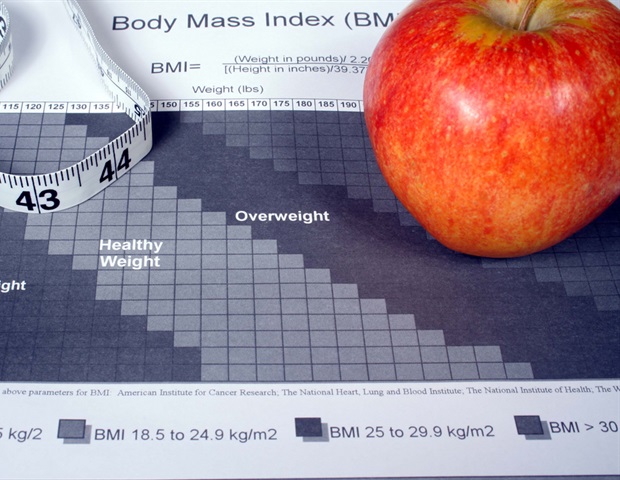A KK Women’s and Children’s Hospital (KKH) study on breastfeeding practices revealed that among the women who exclusively breastfed, those with high body mass index2] (BMI) before pregnancy lost more weight than women with a healthy BMI pre-pregnancy.
Women with high BMI who exclusively breastfed, in addition to losing their pregnancy weight, lost an extra 200 grammes on average, 12 months after childbirth. Women with normal BMI who exclusively breastfed lost weight but continued to retain about 1,330 grams of their postnatal weight during the same period.
Regardless of BMI, all women practicing exclusively breastfeeding tended to retain less weight than those who practiced mixed feeding or exclusively formula feeding. Refer to Annex A, Figure 1. Most women with normal BMI gain an average of 11 to 16 kilograms during pregnancy.
In this year-long study, we made an interesting discovery – an additional benefit for women with high BMI. Due to hormonal factors, there is a re-distribution and management of their body fat to the extent that there is an opportunity for them to lose more than the postnatal weight gain.”
Dr. Loy See Ling, Study Lead Author and Assistant Professor, Department of Reproductive Medicine, KK Women’s and Children’s Hospital
She added, “This is of particular interest in Singapore where we are facing a rising obesity rate at 10.5 per cent in a year. Encouraging exclusive breastfeeding alongside targeted lifestyle changes may serve as an effective intervention for enhancing the metabolic health of young mothers and their families after childbirth especially if they have high BMI, thus decreasing the likelihood of mother and child developing obesity, diabetes, and cardiovascular diseases in the later years.”
Exclusive breastfeeding benefits all mothers
Supported by Tanoto Foundation, the KKH study is the first such study tracking and linking breastfeeding practices with weight loss in an Asian, multi-ethnic population. The study tracked 379 first-time mothers for 12 months after childbirth, and their feeding practices – whether the mothers exclusively breastfed, practiced a mix of breastfeeding and formula feed, or exclusively formula fed.
The study revealed that six months after giving birth, women of all BMI who exclusively breastfed retained the least amount of the postnatal weight at approximately 910 grams. In contrast, women who practiced a mix of breastfeeding and formula feeding retained 3,280 grams, while those who exclusively formula fed retained the most at 4,150 grams.
These patterns remained consistent at 12 months after childbirth – women of all BMI who exclusively breastfed retained approximately 960 grams of their postnatal weight, much lower than women who mixed fed their babies (2,800 grams), and those who exclusively formula fed (3,740 grams).
Implications of postnatal weight retention in women
Asians are found to have a higher tendency to accumulate abdominal or visceral fat as compared to other populations. This can have a profound impact on the Asian mother’s lifelong health, including metabolic and cardiovascular disease, as well as on subsequent pregnancies and the future health of her child.
Dr Loy said, “Postnatal weight retention can also lead to concerns such as stress, anxiety, and depression, especially in Singapore’s culture where there is an emphasis on a rapid return to pre-pregnancy weight. In women with multiple pregnancies, each instance of retained weight can accumulate, resulting in a significant long-term weight increase that can impact pregnancy outcomes and long-term health, thereby increasing the risk of obesity, diabetes and heart diseases for both mother and child.”
Building a healthier SG with breastfeeding
This study exemplifies the life-course principle of the KKH-led SingHealth Duke-NUS Maternal and Child Health Research Institute (MCHRI), underscoring the benefits of exclusive breastfeeding and its role in optimising health of mothers and children in setting the foundation that will last beyond infancy, through childhood, adolescence into adulthood.
This is the first published study under the Community-enabled Readiness for the first 1,000 Days Learning Ecosystem (CRADLE) program funded by Tanoto Foundation. One of the key programs under the KKH-led MCHRI, CRADLE aims to create a self-learning eco-community that spans from pregnancy to early childhood, to enhance parenting self-efficacy among first-time parents. Started in 2020, the program involves KKH participants who were randomly assigned to receive (1) standard routine care; (2) behavioral nudges (text messages) along with the use of a social media platform; or (3) midwife-led continuity care involving individualized teleconferencing sessions, during pregnancy and post-delivery.
In the next phase, CRADLE will provide an innovative, sustainable, scientifically-based strategy to help first-time parents enhance their skills in promoting positive child development and behaviors. This will assist to equip children with the right skills and behaviors for preschool.
Source:
KK Women’s and Children’s Hospital
Journal reference:
Loy, S. L., et. al. (2024) Breastfeeding Practices and Postpartum Weight Retention in an Asian Cohort. Nutrients; 1-25. doi.org/10.3390/nu16132172
Read the full article here


